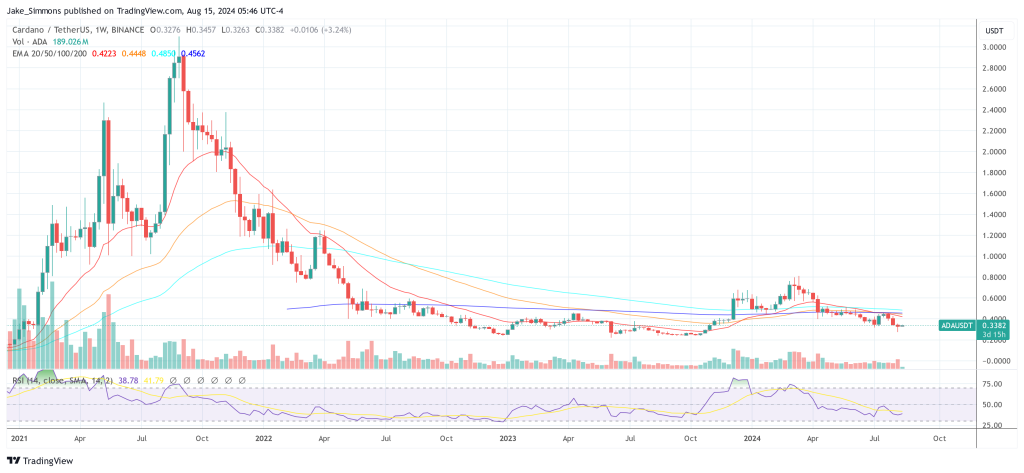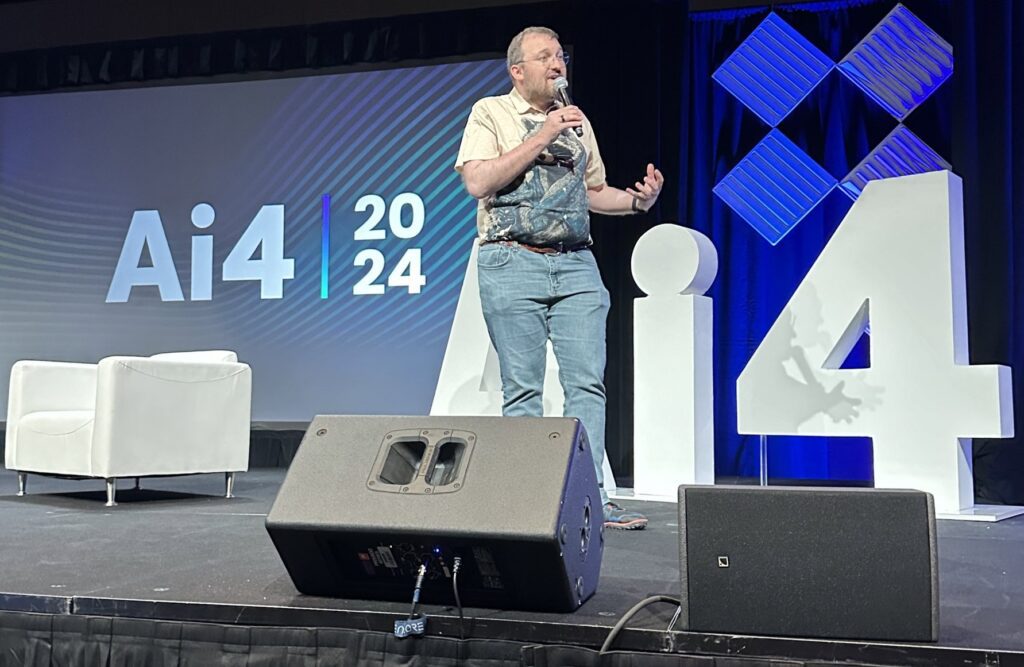At the Ai4 2024 conference held at the MGM Grand in Las Vegas from August 12 to 14, Cardano founder Charles Hoskinson delivered a keynote speech focused on the challenges of merging blockchain and AI. Romain Pellerin, CTO at Input Output, summarized the most significant points from Charles Hoskinson’s keynote via X.
Cardano Founder: How to Merge AI and Blockchain
Hoskinson argued that blockchain could fundamentally support AI by providing a decentralized marketplace for data, models, and inferences, serving as a critical incentive and trust layer. “AI could use blockchain as an incentive and trust layer to create decentralized marketplaces for data, models, and inferences,” Pellerin said, quoting Hoskinson.
In his speech, Hoskinson traced the evolution of blockchain from “the first to the third generation” and highlighted the challenges and potential solutions. “The evolution of blockchain, from information transfer to value creation, has encountered obstacles in a multipolar world,” the Cardano founder noted.
Governance issues, including how decentralized technologies like blockchain and AI manage autonomy and control, were at the heart of Hoskinson’s talk. “Both blockchain and AI face governance issues, including decentralization and disintermediation of infrastructure, which pose parallel challenges for the industry,” Hoskinson said.
He highlighted the parallel challenges faced in both areas, stressing the need for innovative governance that facilitates decentralization while ensuring effective management and integrity. “AI’s reliance on vast data and computing power presents challenges in data collection and sharing. Tokenization and incentives can offer solutions,” the Cardano founder said.
Hoskinson also discussed the major challenges of data privacy in AI, advocating advanced solutions such as fully homomorphic encryption to ensure that data can be processed without compromising privacy. This, he noted, could enable truly private smart contracts and secure data exchanges.
The Cardano founder then discussed the regulatory and philosophical challenges facing both technologies. As Pellerin explained, “blockchain, AI, quantum computing, and synthetic biology all face similar regulatory and data ownership challenges.” Hoskinson stressed the importance of aligning these technologies with ethical and legal frameworks to ensure responsible development and deployment.
Hoskinson pointed out that practical applications of blockchain in the context of AI, such as royalty management and vehicle identification systems, are areas where blockchain can handle complex computations and enable new functionalities. However, challenges remain. “The integration of AI and blockchain is hampered by technical incompatibility and the first-mover problem, but complementary solutions could emerge to address these challenges. Blockchain could secure data and reduce hacking incidents, which would address the neglected data economy in the West, which is now dominated by monopolies,” Hoskinson explained.
Summarizing Hoskinson’s talk, Pellerin concluded by discussing the technical and philosophical challenges of merging these powerful technologies. “The fusion of blockchain and AI presents significant challenges, but also opens up opportunities for innovation. From data governance and privacy to decentralized markets and ethical concerns, the intersection of these technologies requires careful coordination and alignment of incentives to unleash its full potential.”
At press time, ADA stock was trading at $0.3382.

Featured image of X, chart from TradingView.com

